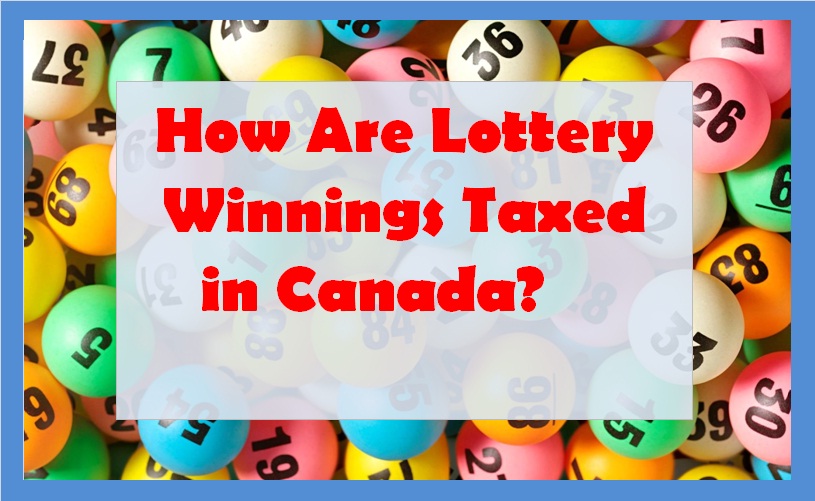Contents
How Are Lottery Winnings Taxed in Canada?
Lotteries have long been a popular form of entertainment and a chance at life-changing riches. If you’re fortunate enough to win a lottery in Canada, understanding how your winnings are taxed is essential to avoid any surprises come tax season. This guide delves into the intricacies of how lottery winnings are taxed in Canada, ensuring you’re well-prepared to manage your windfall responsibly.
Lottery winnings can be a dream come true, but they also come with tax implications that shouldn’t be ignored. Canada’s taxation system treats lottery winnings differently based on factors such as the nature of the prize, the province you reside in, and the amount you win. Let’s explore the key points you need to know:
Taxation of Lottery Winnings in Canada
1. Types of Lottery Winnings
Lottery winnings can include various forms, such as cash prizes, vehicles, vacations, or real estate. These winnings are considered windfalls, and they are generally not subject to personal income tax.
2. Provincial Differences
Provincial regulations can influence how your lottery winnings are taxed. In most provinces, lottery prizes are not taxable at the provincial level. However, if you reside in Quebec or Ontario, be aware that certain winnings might be subject to provincial taxes.
3. Income Tax Considerations
Lottery winnings in Canada are not considered taxable income. This means you won’t need to report your winnings as part of your regular income on your tax return.
4. Tax on Interest and Investment Income
Once you’ve received your winnings, any interest or investment income generated from those winnings will be subject to taxation. It’s crucial to manage these investments prudently to minimize your tax liabilities.
5. Gifting and Donating Winnings
If you choose to gift or donate a portion of your winnings, there may be tax implications. While gifting itself isn’t taxable, any income generated from gifted funds may be subject to tax.
6. Professional Gambling
For individuals whose primary source of income is gambling, including professional poker players, different tax rules may apply. Such individuals are generally required to report their winnings as self-employment income.
7. Establishing Residency
If you’re a non-resident of Canada but win a Canadian lottery, you might be subject to withholding taxes. These taxes are typically deducted from your winnings before you receive them.
8. Reporting Requirements
Although lottery winnings are not taxable, it’s important to keep records of your winnings and related expenses. This documentation will be valuable in case of an audit or if questions arise regarding the source of your funds.
9. Avoiding Scams and Fraud
Unfortunately, lottery winnings can attract scammers. Be cautious of unsolicited communications claiming you’ve won a lottery. Legitimate lotteries will not ask for payment upfront in exchange for your prize.
10. Seeking Professional Advice
Understanding the tax implications of lottery winnings can be complex. To ensure you make the right financial decisions, consider consulting with a tax professional who specializes in lottery winnings and taxation.
In conclusion, understanding how your lottery winnings are taxed in Canada is vital to managing your newfound wealth. By being aware of provincial differences, investment taxation, gifting implications, and seeking expert advice, you can navigate the tax landscape with confidence. Remember that while lottery winnings themselves are generally not taxable, the income generated from them may be subject to taxation.
Summary Table
| Aspect | Tax Treatment |
|---|---|
| Types of Winnings | Generally not subject to personal tax |
| Provincial Differences | Varies; Quebec and Ontario may tax |
| Income Tax | Not considered taxable income |
| Interest and Investments | Subject to taxation |
| Gifting/Donating Winnings | No tax on gifting; income may be taxed |
| Professional Gambling | Different rules for professional gamblers |
| Non-Resident Winners | Withholding taxes may apply |
| Reporting Requirements | Keep records for potential audits |
| Avoiding Scams | Be cautious of unsolicited communications |
| Seeking Professional Advice | Consult tax experts for guidance |
FAQs: How Are Lottery Winnings Taxed in Canada?
Q1. Are lottery winnings taxable in Canada?
A1. No, lottery winnings themselves are not considered taxable income in Canada.
Q2. Are there any provincial differences in taxation in Canada?
A2. Yes, some provinces like Quebec and Ontario may impose taxes on certain types of lottery winnings.
Q3. Do I need to report my lottery winnings on my tax return in Canada?
A3. No, you don’t need to report your lottery winnings as part of your regular income on your tax return.
Q4. Are there taxes on interest earned from my lottery winnings in Canada?
A4. Yes, any interest or investment income generated from your lottery winnings is subject to taxation.
Q5. Can I gift or donate a portion of my lottery winnings tax-free in Canada?
A5. Gifting itself is not taxable, but income generated from gifted funds might be subject to tax.
Q6. If I win a lottery but live outside Canada, will I be taxed?
A6. Non-resident winners might be subject to withholding taxes deducted from their winnings.
Q7. Are there reporting requirements for lottery winnings in Canada?
A7. While lottery winnings are not taxable, it’s wise to keep records in case of audits or questions about the source of funds.
Q8. How can I protect myself from lottery scams in Canada?
A8. Be cautious of unsolicited communications and remember that legitimate lotteries won’t ask for upfront payments.
Q9. Can professional gamblers be taxed differently in Canada?
A9. Yes, professional gamblers may need to report their winnings as self-employment income.
Q10. Should I seek professional advice for managing my lottery winnings in Canada?
A10. Yes, consulting with a tax professional experienced in lottery winnings can help you make informed financial decisions.

